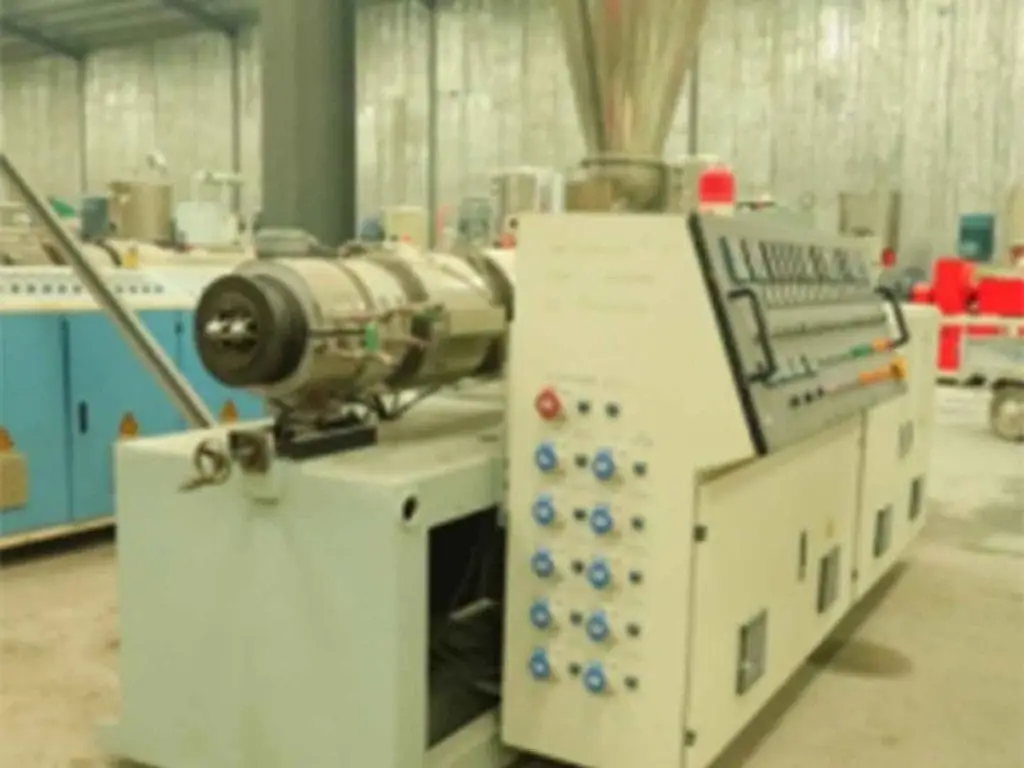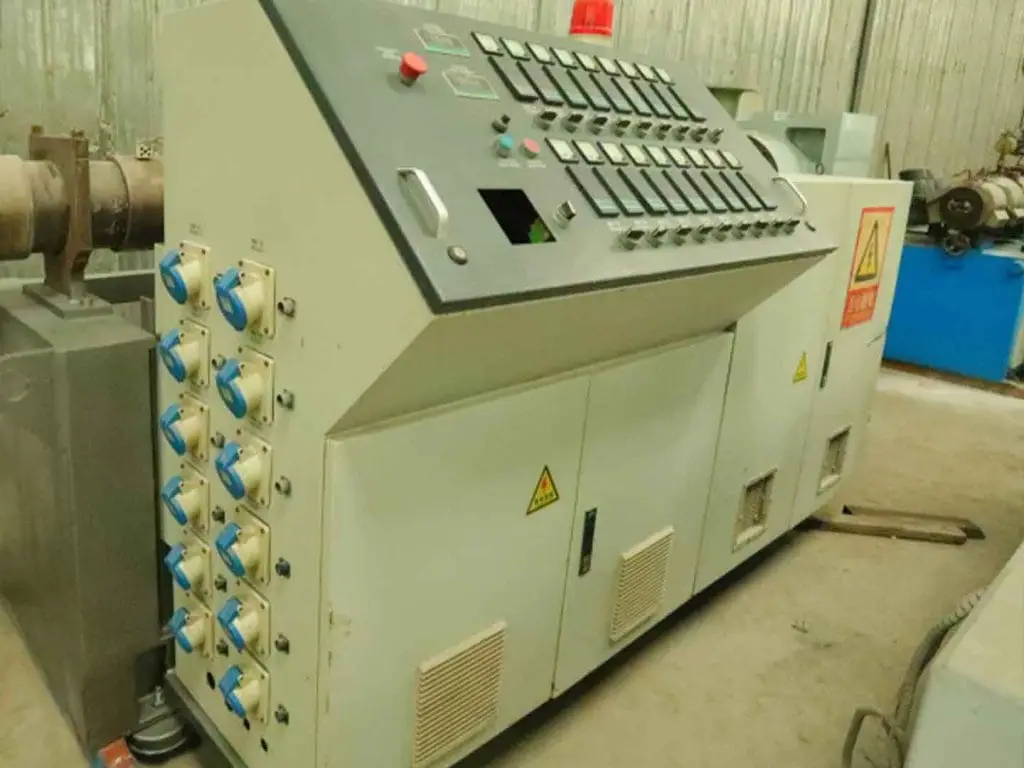Welcome to My Blog!
Before we dive into the content, I’d love for you to join me on my social media platforms where I share more insights, engage with the community, and post updates. Here’s how you can connect with me:
Facebook:https://www.facebook.com/profile.php?id=61567891941530
Now, let’s get started on our journey together. I hope you find the content here insightful, engaging, and valuable.
Caisu Machinery sells a variety of used plastic pipe production equipment. The products are of high quality and low price. Welcome to contact us for consultation and purchase. We will be happy to serve you.
Table of Contents
Introduction

Polyethylene (PE) foam is a versatile and widely used material in industries ranging from packaging to construction. The manufacturing of this material relies on a crucial piece of equipment: the PE foam extruder. This machine is at the heart of PE foam production, creating products that are lightweight, durable, and cost-effective. In this comprehensive guide, we’ll dive into the details of PE foam extruders, their functionality, advantages, and applications, and answer some frequently asked questions about this essential technology.
What Is a PE Foam Extruder?
A PE foam extruder is a specialized machine designed to produce polyethylene foam products. The process involves melting polyethylene resin, mixing it with blowing agents, and extruding it into foam structures with desirable characteristics such as cushioning, thermal insulation, and shock absorption. These machines are critical for industries requiring high-performance packaging materials, thermal insulators, and more.
How Does a PE Foam Extruder Work?
The operation of a PE foam extruder involves several key steps. Each step is designed to ensure the final product meets specific quality standards.
The Extrusion Process
- Raw Material Feeding: Polyethylene granules are fed into the hopper of the extruder.
- Melting and Mixing: The material is heated and mixed with blowing agents in the extruder barrel to achieve a uniform consistency.
- Foaming: The mixture undergoes expansion to form the foam structure.
- Shaping and Cooling: The foam is extruded through a die, cooled, and shaped into sheets, rods, or other forms.
Applications of PE Foam Extruders
PE foam extruders are versatile machines used to produce materials for various applications. Let’s explore some key industries that benefit from this technology.
Packaging
PE foam is widely used in protective packaging due to its cushioning properties. It ensures safe transport of fragile items like electronics, glassware, and machinery.
Construction
In the construction sector, PE foam serves as a thermal insulator and soundproofing material. It is also used for underlayments in flooring applications.
Automotive
PE foam is employed in vehicle interiors for noise reduction, cushioning, and insulation. It enhances passenger comfort while ensuring durability.
Sports and Leisure
From yoga mats to flotation devices, PE foam is used in sports and recreational products for its lightweight and water-resistant properties.
Healthcare
The material is utilized in medical packaging and cushioning for delicate instruments, ensuring safety during storage and transport.
Advantages of Using PE Foam Extruders


The use of PE foam extruders comes with numerous benefits that make them an integral part of modern manufacturing.
High Efficiency
PE foam extruders are designed for high-speed production, enabling manufacturers to meet large-scale demands efficiently.
Customization
These machines allow for the production of PE foam in various shapes, sizes, and densities to suit specific applications.
Cost-Effective Production
By optimizing material usage and reducing waste, PE foam extruders offer a cost-effective solution for manufacturers.
Environmental Benefits
Modern PE foam extruders often incorporate eco-friendly technologies, reducing emissions and supporting sustainability initiatives.
Key Components of a PE Foam Extruder
| Component | Function |
|---|---|
| Hopper | Holds and feeds the raw polyethylene granules into the extruder. |
| Screw and Barrel | Melts and mixes the material with blowing agents to achieve a uniform consistency. |
| Die Head | Shapes the foam as it exits the extruder, defining its form and size. |
| Cooling System | Ensures the foam solidifies into the desired shape while retaining its structural integrity. |
| Control Panel | Allows operators to adjust settings such as temperature, speed, and pressure. |
Understanding these components helps operators optimize the machine’s performance and produce high-quality foam products.
How to Choose the Right PE Foam Extruder
Selecting the right PE foam extruder depends on various factors. Consider the following aspects to ensure you invest in the best machine for your needs.
Production Volume
Determine your production requirements to choose a machine with the appropriate capacity.
Material Specifications
Ensure the extruder is compatible with the type of polyethylene resin and blowing agents you plan to use.
Customization Needs
If you need specialized foam products, look for an extruder with customizable die heads and advanced control systems.
Energy Efficiency
Opt for machines that incorporate energy-saving features to reduce operational costs and environmental impact.
Maintenance and Support
Choose a reliable manufacturer that offers comprehensive support and easy access to spare parts.
Maintenance Tips for PE Foam Extruders

Regular maintenance is essential to keep your PE foam extruder running smoothly. Follow these best practices:
- Clean the Machine: Remove residue after each production cycle to prevent clogs.
- Inspect Components: Regularly check the screws, barrel, and die head for wear and tear.
- Lubricate Moving Parts: Proper lubrication ensures smooth operation and reduces the risk of damage.
- Monitor Performance: Keep an eye on temperature, pressure, and other parameters to detect issues early.
Conclusion
PE foam extruders are indispensable for industries that rely on lightweight, durable, and versatile foam products. By understanding their functionality, applications, and maintenance requirements, manufacturers can optimize their use and produce high-quality materials. Whether you’re in packaging, construction, or any other sector, investing in the right PE foam extruder can significantly boost your productivity and sustainability efforts.
FAQ
What is the primary use of PE foam?
PE foam is primarily used for protective packaging, thermal insulation, and cushioning applications across various industries.
How do I maintain my PE foam extruder?
Regular maintenance involves cleaning the machine, inspecting components for wear, lubricating moving parts, and monitoring performance parameters.
Can PE foam extruders produce customized foam products?
Yes, PE foam extruders are highly versatile and can produce foam in various shapes, sizes, and densities based on specific requirements.
What industries benefit most from PE foam extruders?
Industries such as packaging, construction, automotive, sports, and healthcare benefit significantly from the versatility of PE foam extruders.
Are PE foam extruders environmentally friendly?
Modern PE foam extruders often incorporate eco-friendly technologies to reduce emissions and support sustainable manufacturing practices.





